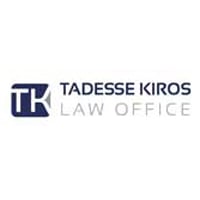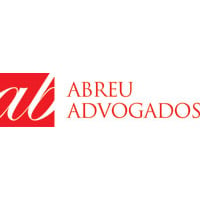

Partner | Mayer Brown International






Rachel Speight
Partner | Mayer Brown International
Number of years practice: 21
Principal practice areas: Mining and project finance
Languages spoken: English
What is the geographical focus of your practice in Africa?
Pan-African practice.
Please describe the most important matters you have worked on in the African market in the last two years, including your role and the significance of the matter (if any) to the development of business and law.
Mayer Brown is leading work for leading financial institutions Société Générale, Standard Bank and Nedbank. Our UK-based mining team is advising these clients on the US$190m refinancing of term loans made available for the project financing of the Kwale Mineral Sands project in Kenya. This mandate also encompasses advising on the US$25m upsizing of an existing revolving credit facility. Base Titanium, a wholly-owned subsidiary of Base Resources, operates the mine which commenced production in late 2013.
Few teams globally are able to offer the depth of global-standard counsel experience required to support such major mandates.
Mayer Brown represented pan-African multilateral development finance institution, Africa Finance (AFC). Our UK mining team acted for AFC in its role as lender on a US$20.5m bridge facility and a US$20m term loan facility. The facility is repayable in physical gold and was extended for the acquisition of two gold mines in the Ivory Coast by way of a share purchase. The structure of the deal required taking security over assets in various jurisdictions including Singapore, Mauritius and Ivory Coast. This highly-complex mining sector financing demonstrates many of the skills for which our UK-based mining team has earned its strength of reputation worldwide. Here, we acted as adviser of first choice to a leading mining sector player in all aspects of a challenging cross-border acquisition financing requiring a range of unique transaction structuring techniques and involving a number of global jurisdictions.
Mayer Brown is advising the Medea Future Materials Fund, a natural resources-focused investment fund. Our team is acting for Medea on the US$20m loan to ASX-listed, Vector Resources in connection with its acquisition of the Adidi Kanga mine in the DR Congo. The financing will be used to fund upfront acquisition costs and a definitive feasibility study for the project, as well as initial project development costs. Vector, together with Mongbwalu Goldfields Investment and Fimosa Capital as partners, intend to acquire a 60 % interest in the project. Our work on this major mining sector financing offers clear proof of our work representing leading private equity players focused on mining sector investment around the world. We also worked on the original establishment of the Medea Fund.
[The team also] advised the lenders to the First Quantum Minerals group on the refinancing of their US$2.2bn loan to the group with mining assets across the globe including in Mauritania, Zambia, Australia, Turkey, Spain and Peru.
What differentiates your practice from that of other private practice lawyers?
We are able to support clients in all aspects of their projects and operations in Africa, offering a dedicated, internationally qualified team with experience of working on a range of matters in Francophone, Anglophone, Lusophone and other jurisdictions.
The firm’s fully integrated skills in key areas such as project finance, international arbitration, international banking, mining, oil and gas, telecoms, infrastructure, among others.
Tried and tested project management skills to ensure that both on-site and remote support on African projects is delivered effectively; and close relations with local counsel throughout
the continent.
Why has Africa been a particularly strong focus for you?
Our tier-one mining practice means we have deep experience in countries in Africa where mining takes place. This sector experience has now expanded to power, oil and gas, telecoms and other infrastructure.
Our Africa group supports clients with an interest in African jurisdictions and has proven experience in addressing and resolving issues as they arise. We have a comprehensive track record in African common and civil law jurisdictions, complemented by unrivalled strength in capital markets and international trade, project finance, with particular strength in the following industries: mining, energy – oil and gas, infrastructure, agribusiness and heavy industry.
Our association with Tauil & Chequer Advogados (T&C), a Brazilian law firm with offices in Rio de Janeiro, São Paulo and Vitória, substantially increases the resources available to clients in
relation to investments in Africa, notably Angola and Mozambique, where many of T&C’s clients are active.
What changes have you seen in the appetite for Africa-based ventures and investments over the last five years?
Despite the challenges in investing in Africa, we have seen a steady growth in appetite for investing in Africa, away from the traditional sectors like mining and into technology focussed sectors.
Are there any aspects of the African legal market that you would like to see change?
A wide variety of challenges are presented by investing in specific countries, such as high security registration costs linked to loan values, ministerial consent for opening bank accounts, ministerial consent to the granting of certain security; paper-based asset registers, requirements for the repatriation of revenues and exchange control requirements.
At a political level unexpected changes to taxation are a challenge to investment on the continent.
What megatrends do you think will shape the African market over the coming five years? How (if at all) will these trends affect your practice?
Technology and artificial intelligence is a significant point of discussion, for example mobile banking which is significantly ahead of the European market. The increasing role of Africa and Pan-Africa based investors in African projects (rather than European or US investors) and growth of intra-continental trade will also feature, as well as the increasing role of women in the economy.
Lastly, the ongoing role of Chinese investment, urbanisation, infrastructure development and renewable energy.